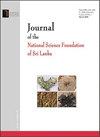与斯里兰卡已婚妇女对艾滋病毒/艾滋病传播的突出误解有关的社会人口和行为因素:利用桥式分布函数建立相关二元结果模型的应用
IF 0.4
4区 综合性期刊
Q4 MULTIDISCIPLINARY SCIENCES
Journal of the National Science Foundation of Sri Lanka
Pub Date : 2024-01-02
DOI:10.4038/jnsfsr.v51i4.11558
引用次数: 0
摘要
人类免疫缺陷病毒(艾滋病毒)病例报告通常只代表斯里兰卡艾滋病毒感染者的趋势模式。对艾滋病毒有一定程度的了解在很大程度上有助于预防艾滋病毒在斯里兰卡的流行。艾滋病毒感染者对与他们共同生活的公众以及与他们有普通非性接触的公众并不构成危害。然而,在斯里兰卡这样的文化中,艾滋病病毒感染者会受到极大的侮辱,并产生许多心理和社会影响。本研究旨在确定与斯里兰卡已婚育龄妇女了解有关艾滋病毒/艾滋病传播的两个主要错误观念相关的因素。这将有助于确定哪些社会经济、地理亚群体缺乏有关艾滋病传播的知识。分析中使用了 2016 年斯里兰卡人口与健康调查的二手数据。由于发现两个结果变量高度相关,因此考虑了联合建模,相信一种误解的已婚妇女也更有可能相信第二种误解。为了捕捉两个结果之间的关联,我们加入了一个共享随机效应,并假设随机效应为桥式分布。我们发现,受访者所在省份、最高教育程度、接触大众媒体的机会、宗教信仰、年龄和财富指数对有关艾滋病传播的突出错误观念有显著影响。本文章由计算机程序翻译,如有差异,请以英文原文为准。
Socio-demographic and behavioural factors associated with prominent misconceptions of HIV/AIDS transmission among ever married women in Sri Lanka: An application of modelling correlated binary outcomes using a bridge distribution function
Human Immunodeficiency Virus (HIV) case reporting usually represents only the trending pattern of HIV infected people in Sri Lanka. Having a decent level of knowledge about HIV largely contributes to preventing HIV prevalence in the country. People with HIV are not hazardous to the public who live together with them and with whom they have ordinary, non-sexual contact. However, suffering from HIV in a culture like Sri Lanka generates an extreme level of stigmatizing by people living with HIV and many psychological and social effects. This study aims to identify the factors that are associated with possessing knowledge, among ever married women in the reproductive age in Sri Lanka, regarding two prominent misbeliefs on HIV/AIDS transmission. This will be useful to identify various socio-economic, geographic subgroups who are lacking knowledge on HIV/AIDS spread. Secondary data from 2016 Sri Lanka Demographic and Health Survey was used in the analysis. Joint modelling was considered since it was found that two outcome variables are highly associated and hence the ever-married woman who believes one misconception is more likely to believe the second misconception too. To capture the association between two outcomes, we incorporated a shared random effect and assumed the bridge distribution for the random effect. Respondent’s province, highest level of education, access to mass media, religion, age and wealth index were found to have a significant effect on prominent misconceptions on HIV/AIDS transmission.
求助全文
通过发布文献求助,成功后即可免费获取论文全文。
去求助
来源期刊

Journal of the National Science Foundation of Sri Lanka
MULTIDISCIPLINARY SCIENCES-
CiteScore
0.90
自引率
0.00%
发文量
57
审稿时长
>12 weeks
期刊介绍:
The Journal of National Science Foundation of Sri Lanka (JNSF) publishes the results of research in Science and Technology. The journal is released four times a year, in March, June, September and December. This journal contains Research Articles, Reviews, Research Communications and Correspondences.
Manuscripts submitted to the journal are accepted on the understanding that they will be reviewed prior to acceptance and that they have not been submitted for publication elsewhere.
 求助内容:
求助内容: 应助结果提醒方式:
应助结果提醒方式:


